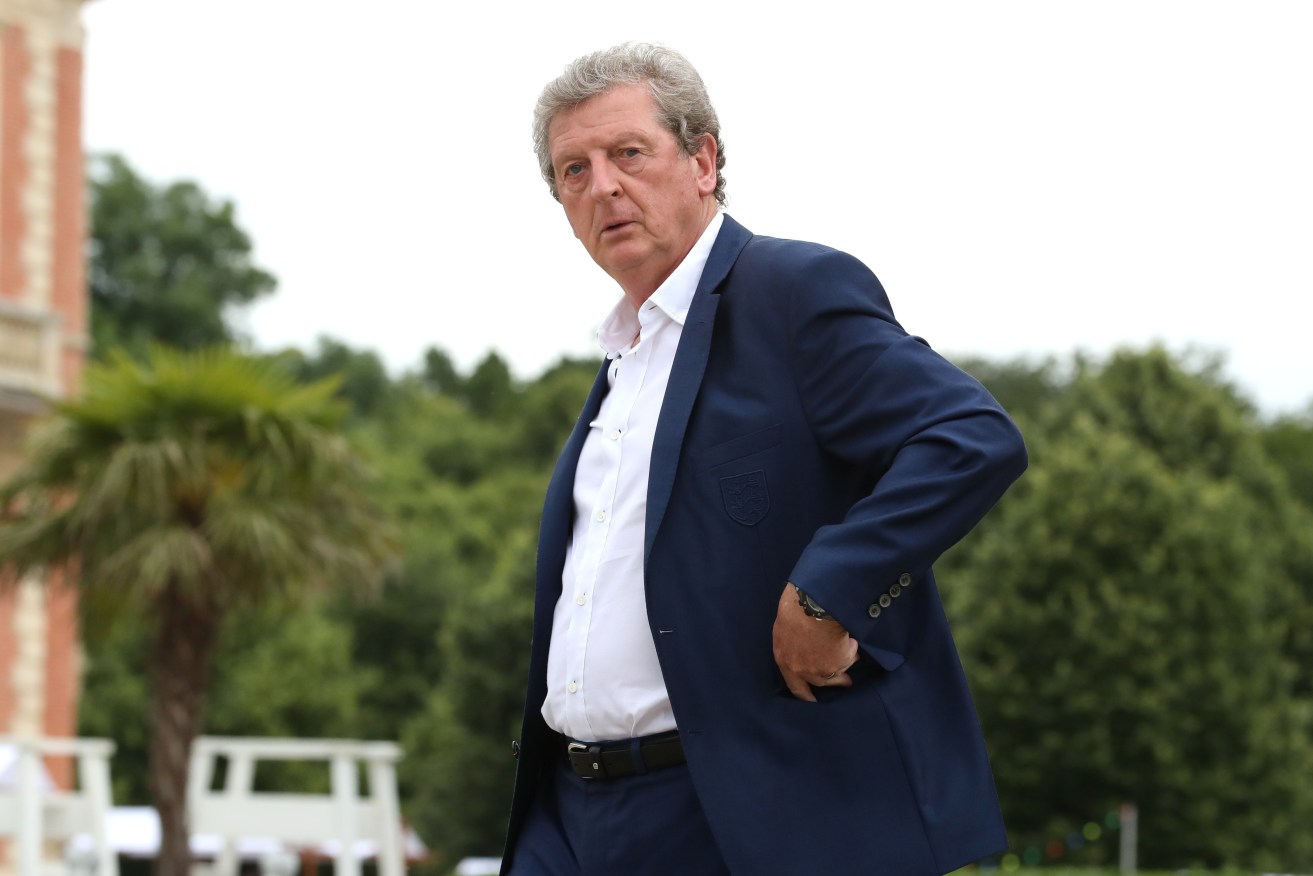“I don’t really know what I’m doing here”: Fragile England manager faces the music
Outgoing England manager Roy Hodgson has denied reports his players questioned his selection decisions before the embarrassing 2-1 defeat by Iceland which sent the team out of Euro 2016.

Outgoing England manager Roy Hodgson after a press conference in Chantilly, France. Photo: Owen Humphreys, PA Wire.
At a news conference less than 24 hours after quitting, Hodgson was asked about reports of disharmony in the camp and claims that senior players queried the selection of winger Raheem Sterling against Iceland and the six team changes made before the final group game against Slovakia.
“There was no indication that they weren’t behind us, that they weren’t behind the game plans and trying hard to execute,” said a visibly tense Hodgson before an Football Association (FA) official stepped in to point out that they had also been denied by England’s captain Wayne Rooney.
Rooney released a statement to the Press Association which said: “In response to recent media reports, I’d like to say that is completely untrue. On behalf of the players, we completely supported the England manager.”
The claims had been reported by Sky Sports who said they had come from unidentified sources inside the England camp.
Hodgson, whose selections and tactics were heavily criticised in the British media, said he was feeling “fragile” after Monday’s defeat, which some critics said was the worst in English football history.
“I don’t really know what I’m doing here but I was told it’s important for me to appear as everyone is still smarting,” said Hodgson, who apologised to England supporters for the result.
“My emotions are obvious. I was really disappointed and I didn’t see the defeat coming. If you don’t turn up and play to your abilities, you can be beaten. I’m very fragile today as you can understand.”
But he predicted that England’s players would bounce back and show they could perform at an international tournament.
“I’m sure that these players will get better and better. One day I think we will do well and hopefully that can happen in 2018 (at the next World Cup).”
Hodgson was accompanied by Football Association chief executive Martin Glenn who said a review would now be conducted into why England were so “brittle” at tournaments.
We’re not denying that our perennial problem is that England seem brittle at the business end of the season
“When it comes to the business end of the tournament we’ve come up short for many years,” he said.
“We’re not denying that our perennial problem is that England seem brittle at the business end of the season.”
Glenn said he would join FA’s technical director Dan Ashworth and David Gill, FA vice-chairman, in a search to find a new manager.
He said they were looking for “the best person for the job,” and did not rule out appointing a foreign manager.
“We are looking for the best person, not necessarily the best Englishman,” he said.
Meanwhile,UEFA’s interim chief said Iceland’s fairytale progress to the last eight of the European Championship is just what the competition needs to prevent it going stale and a model for smaller nations to realise their dreams.
The smallest country ever to compete at the Euros surprised soccer fans around the world after comfortably knocking out England, the overwhelming favourites for the game, to set up a dream tie with hosts France.
But UEFA’s interim Secretary General, Theodore Theodoridis, said the victory was not entirely unexpected after the country of just 330,000 people invested heavily in recent years to develop its soccer infrastructure.
“It’s a model. We will be using it as a positive image for the expansion (to 24 teams),” he told reporters.
“It’s pleasant for football to have one or two Cinderella stories. If you always have the same eight teams qualifying it becomes a little boring.”
Fellow minnows Wales, too, have made it to the quarter-finals, which also include former champions Germany and Italy.
Theodoridis, who more or less ruled himself out of running for UEFA’s presidential election next September, said that Iceland’s success was not a surprise.
“You could see it coming — maybe not beating England, but you could see they would be competitive and would end up in a final tournament,” he said.
“If you look back over the last four years their under-21s and under-19s qualified more often than in the past.”
-Reuters




